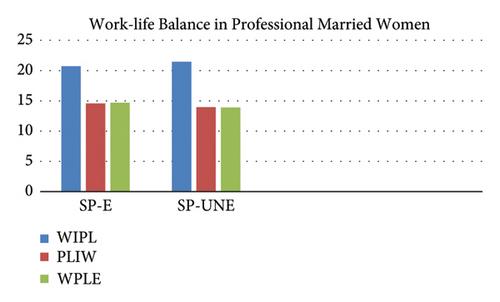A diverse workforce is innovative and women are equally contributing to the country’s economic development along with men. In a dynamic business community, women are more enthusiastic and progressively using their potential for financial growth and providing benefits to their families as well. In the subcontinent, women also participate in the workforce and contribute to improving their quality of life and financial responsibilities. The objective of current research is to find out the relationship between emotional health, positive life orientation, and work-life balance in professional married women. A correlational research design and purposive sampling strategy were utilized to conceptualize the study. A total of 300 professional married women who served in various positions in different organizations were selected. Standardized instruments were used to measure study variables along with sociodemographic Performa. Statistical findings of the study revealed a significant positive relationship between emotional wellness, positive life orientation, and work-personal life enhancement ( ∗∗∗p < 0.01, ∗∗p < 0.1, ∗p < 0.05) by using Pearson product-moment correlation. Mediation through PLS revealed that positive life orientation mediates the relationship between emotional wellness and work-life balance. Independent Sample T-test results also revealed that working women living in the nuclear family system have higher work interference with personal life and personal life interference with work than those women who live in a joint family system. This research will be helpful for organizations to design a conducive and women-friendly job environment and use women’s potential for constructive and productive professional growth and organizational progress.



